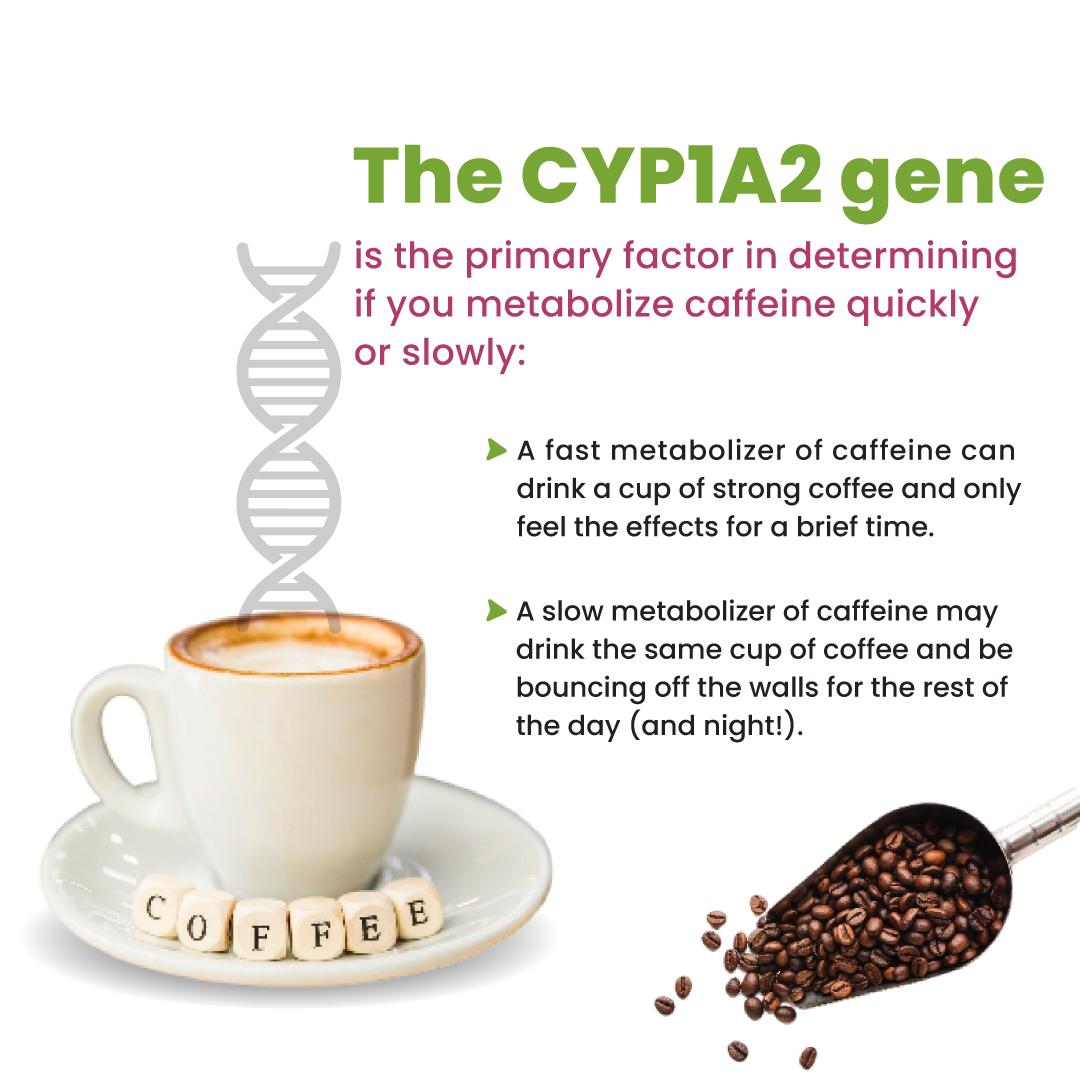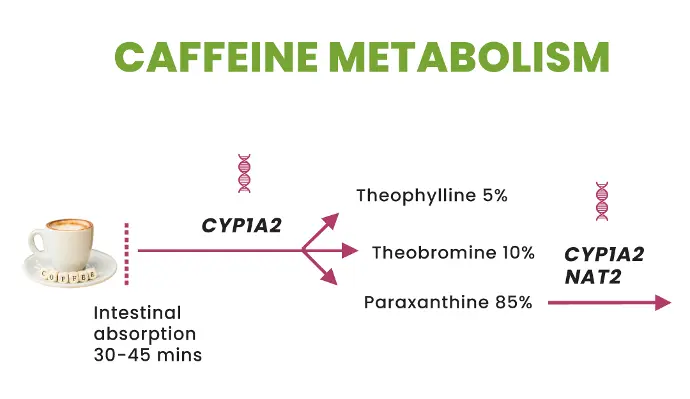Caffeine is a natural stimulant that works by blocking the action of adenosine, a neurotransmitter in the brain that promotes relaxation and sleepiness. When you consume caffeine, it competes with adenosine for binding to its receptors, preventing adenosine from exerting its calming effects. This leads to increased alertness, improved focus, and reduced feelings of fatigue. Additionally, caffeine also stimulates the release of other neurotransmitters such as dopamine and norepinephrine, which can further enhance mood and cognitive function.
How Caffine metabolised?
Caffeine is primarily metabolized in the liver by an enzyme called cytochrome P450 1A2 (CYP1A2). This enzyme breaks down caffeine into three primary metabolites: paraxanthine, theobromine, and theophylline. These metabolites are further processed and eventually excreted from the body through urine. The rate at which caffeine is metabolized can vary among individuals based on factors such as genetics, age, and certain medications.
What is CYP1A2, and why should it matter to you?
The way in which your body processes caffeine is intricately tied to the version of the CYP1A2 gene that you possess. This genetic variant plays a crucial role in determining whether you are a fast or slow metabolizer of caffeine, ultimately influencing how your body responds to this stimulant.
Those who are homozygous (i.e., carry two copies) for the CYP1A2*1A allele are rapid caffeine metabolizers. Those who are “slow” metabolizers of caffeine carry the CYP1A2*1F variant of the CYP1A2 gene, meaning that caffeine has a longer half-life in the body.
The CYP1A2 gene codes for (or, it has the instructions for) the cytochrome P450 1A2 enzyme needed by the body to break down caffeine. Lower enzyme production means slower clearance of caffeine from the body, which means you feel the effects for longer
And what are downside of CYP1A2 gene variation?
- Well, the most obvious impact of a longer clearance process for caffeine is a longer caffeine “buzz” and more difficulty sleeping.
- Lack of sleep, especially if chronic, is no small matter, but there are other health impacts of high caffeine consumption and slow CYP1A2 variants.
- Research suggests that slow metabolizers of caffeine may have a greater risk of heart attack and high blood pressure, for instance.2
- In one study, heavy drinkers of coffee with the slow allele of the gene had three times the risk of hypertension compared to those with the same variant but who didn’t drink coffee.3 (Moderate coffee drinkers had a 72-percent increased risk of hypertension.)In contrast, those with two copies of the rapid metabolizer allele had a 20-percent reduction in risk compared to non-coffee drinkers with the slow variant, while heavy drinkers had a 64-percent reduction.

